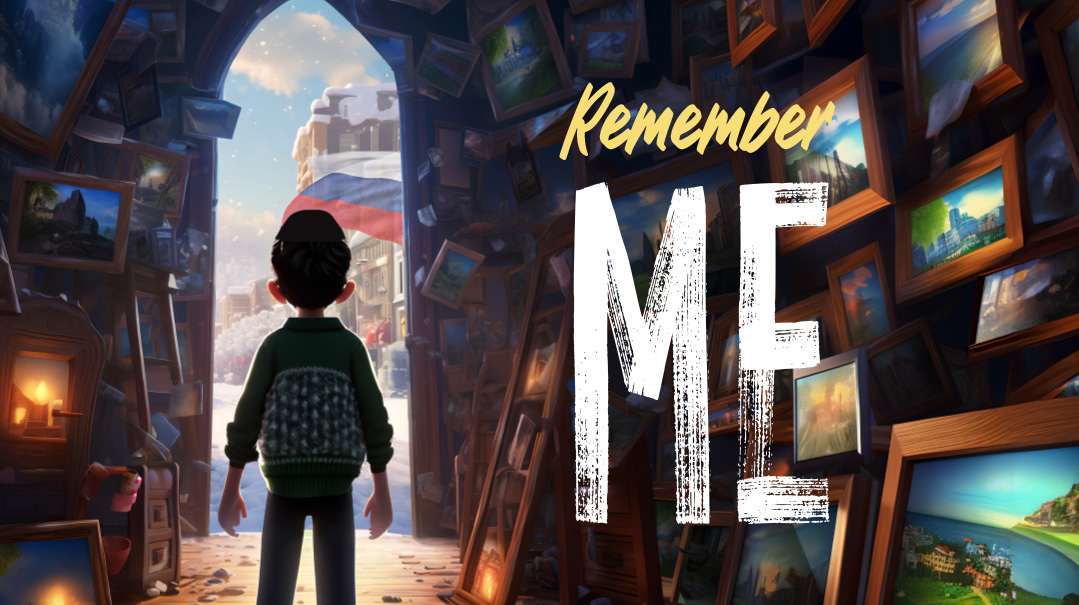Home Ground: Chapter 13
| April 3, 2023“So you moved to a brand-new place, with no family, and you just stayed there until you got married?”

“It’s ironic, isn’t it, that a letter I thought no one would ever read could end up causing trouble years later,” Ima says, giving a soft laugh.
I don’t say anything. I’m not really interested in analyzing the situation. I just want to know what that letter was all about. Why it exists in the first place.
“It must have been strange for you to read it,” Ima says into the silence. Her voice is so warm, I want to cry.
“Yes,” I say simply. It doesn’t encapsulate a quarter of what I’ve been feeling the past few days, but it doesn’t matter; Ima understands.
“I don’t remember exactly what’s written there,” Ima says slowly. “But I know the gist… and I’m sure it left you with some questions.” She takes her time choosing the words. I grip the phone tighter and realize I’m holding my breath.
“I know it sounds strange now,” Ima says slowly. “But as you saw in the letter… I didn’t do so well in high school.”
“Didn’t do well?” I parrot. I can’t imagine her failing school. “But you’re — you’re so smart!”
“Oh Ashira, you’re so sweet," Ima says, giving a small laugh. “The truth is that… I was smart, but not — not the kind of smart that got good grades. In those days, I mean,” she clarified, somewhat hurriedly.
“In those days?” I sound like an echo. But I just want to hear more.
Ima hesitates. “Well, yes. I mean… look, in school, I’m sure you learn by listening to the teacher, and also writing things down, seeing pictures, maybe videos or slides,” she says. “But back then, we mostly had teachers who gave lectures, and we took notes. We didn’t really have much variety, no color picture textbooks, no activities or learning in different sensory ways, and I… well, you know me, Ashira, I just love getting my hands dirty.”
This time, I laugh along with Ima. She’s so real, I love her.
But I still don’t understand.
“But why did that mean you failed school?”
Ima hesitates. “Nowadays, everyone talks about different types of smarts, of intelligences. Back then… I guess, it wasn’t so usual. I was bright, but I couldn’t process the information just from listening. I couldn’t learn like that. So I failed. I had to get tutors, but I didn’t want to go out of class to them. It was… embarrassing. And besides, I knew I needed to learn differently, more creatively.Hearing it one-on-one wouldn’t help.”
“Oh,” I say slowly. I guess it makes sense. Something, though, is still niggling at me. “So that’s why you moved to America?”
“Well, yes, in a nutshell,” Ima says slowly. “The truth is, I went to camp there, and I became very close with… but you know this part of the story. Mrs. Seligman, the shiur director in camp, was also a mechaneches at a very special high school that had a diverse student body. In camp, she gave these shiurim, and everything just came alive. I was finally learning. I was top of the bunk, and I just had my heart set on switching to go to school there.”
“So Bubby and Zeidy just said yes? And you moved across the world?”
“Oh, it didn’t happen like that, it took time,” Ima says vaguely. I wonder if she’s distracted, or thinking, or just doesn’t want to say much more. “I think at one point Zeidy flew to America, he looked into the school himself, and liked what he saw. In the meantime, I had a very difficult year in school. I ended up leaving after Pesach, and then I went to camp again, and I just stayed. You know the story from there.”
The details swirl through my mind, slotting into the story I’d grown up on: an adventure tale of Ima, the shiur director, and a new school.
But now… it doesn’t sound much like an adventure.
“So you moved to a brand-new place, with no family, and you just stayed there until you got married?” I ask. Yes, I’d always known this part, but now, only now, am I realizing what it must have meant to Ima, as a young teen so far from home.
“Well, I knew Mrs. Seligman, and I knew some of my new classmates, they were my camp friends,” Ima says. “But what should I say? It was hard, of course it was. Baruch Hashem, though, I had a happy ending. I did much better in school there, and after I graduated, I got a job teaching in that school, while I went to a night seminary. And then very soon after that I was introduced to Abba, and we got engaged.”
“And then you moved to India,” I finish.
“We did,” Ima says. I hear the smile in her voice. It must be peaceful there; late at night, the house calm and quiet, Ima sipping a tea or — more likely — whipping up Shabbos food while she speaks.
A wave of homesickness rushes over me.
“I wish I could come for Shabbos,” I say.
“Me, too, honey.”
When we hang up the phone, I feel sad, but also… peaceful. Like something that had been holding my heart hostage has finally broken free, leaving me light, unencumbered.
Also, I realize that I’m hungry.
I clatter down the stairs to see if supper’s ready. Bubby’s not in the kitchen, but someone else is… a familiar someone, with brown hair in a casual bun, light cream-colored jacket zippered up over her uniform sweater.
I stop short. “What are you doing here?”
Raizy tosses her head. “It’s my grandmother’s house, too, you know.”
Well. If she’s going to be like that….
I match her tone. “Yes. And you don’t seem to come by that often.”
She rolls her eyes. Maybe I’ve hit a nerve. “I have a life, you know,” she mutters.
Now that’s a sore point. Thanks, Raizy, for reminding me that my family is a million miles away and I have exactly zero friends, unless you’re counting Little Miss Over-Friendly, Tammy Fischer.
“Oh, some cousin bonding time,” Bubby says, bustling into the kitchen and beaming. Raizy jumps up from the chair, glaring in my direction as if it’s my fault she’s been caught fraternizing with The Enemy. Or, the weirdo cousin from India.
“Hi, Bubby. I just came to return these. I need to go in a minute.”
“Those trays? Do me a favor, dear. You know where I keep the fancy tableware, in the closet in the basement? Could you put them away for me?”
“Sure,” Raizy says. She’s the model of sweetness.
“Maybe you’ll stay for supper. It’ll be nice to have you over, so Ashira’s not totally outnumbered by us old folks,” Bubby says.
I glance at Raizy just as she darts a look at me.
“No, I really have to go,” she says. Phew. Raizy edges to the door. “I’ll just put these away.”
I’m not standing around here looking like a nerd. “I forgot something. I’ll come down soon,” I tell Bubby, and hurry upstairs, where I leave my door a crack open and wait to hear Raizy leaving.
Seriously, I’m supposed to like my cousins, but they are just. Such. Snobs. Especially Raizy.
I lie down on my bed, let my mind wander, try to recapture some of the good feeling I had from my conversation with Ima.
Then I hear a sudden clatter from downstairs, like a bunch of metal pots are falling, one after the next, followed by a heavy thud and a cry of pain.
And then I hear my name, being called in a weak voice: “A-shi-ra? Raizy?”
Everything else flies out my mind. I take the stairs two at a time. “Bubby?!”
My heart jumps into my throat.
Bubby is lying on the kitchen floor.
To be continued…
(Originally featured in Mishpacha Jr., Issue 956)
Oops! We could not locate your form.




